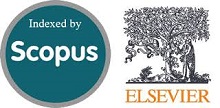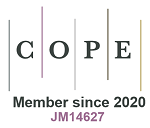Development of the “1+2+X” Modular Course System for Information Technology Majors from the Perspective of Dual-Mode IT
Abstract
Doi: 10.28991/ESJ-2023-07-03-024
Full Text: PDF
Keywords
References
Wei, M. (2016). Systematically Promoting Intelligent Manufacturing and Speeding Up the Construction of a New Manufacturing System - Speech of Miao Wei, the Minister of Industry and Information Technology, at the Experience Exchange of National Intelligent Manufacturing Pilot Demonstration. Equipment Manufacturing, 8(08), 30-34.
Ming, L., Zhiping, L., Chenfei, W., & Changchun, J. (2016). “Dual-mode IT” Theory and Practice: Transformation of IT Strategy and Service Management in Automobile Manufacturing Industry. Manufacturing Automation, 39(09), 98-101.
Action of Tianjin University. (2017). “Emerging Engineering Education” Construction Action Route. Research in Higher Education of Engineering, 2(02), 24-25.
Frymier, J. R. (1973). Developing a Curriculum system. Theory Into Practice, 12(3), 201–204. doi:10.1080/00405847309542452.
Yang, L. H., Liu, B., & Liu, J. (2021). Research and Development Talents Training in China Universities—Based on the Consideration of Education Management Cost Planning. Sustainability, 13(17), 9583. doi:10.3390/su13179583.
Chen, G., Li, X., Zhang, X., & Reniers, G. (2021). Developing a talent training model related to chemical process safety based on interdisciplinary education in China. Education for Chemical Engineers, 34, 115-126. doi:10.1016/j.ece.2020.11.012.
Yongqiang, Y., & Lijun, Y. (2013). Construction of modular curriculum system for mechanical specialty based on OBE concept. New West China: Midday Theory, 12 (12): 22-24.
Lin, G., & Tang, Y. (2015). Application of CDIO in practice and training of an engineering automation specialty. World Transactions on Engineering and Technology Education, 13(3), 407-411.
Felder, R. M., & Hadgraft, R. G. (2013). Educational practice and educational research in engineering: Partners, antagonists, or ships passing in the night? Journal of Engineering Education, 102(3), 339–345. doi:10.1002/jee.20015.
Bin, X. (2019). Research on the construction of undergraduate curriculum system for innovative engineering talents. Tianjin University, (June 2019), 43-46, Tianjin, China.
Burke, L. E. C. A., Chong, A., Evans, G. J., & Romkey, L. (2020). Cultivating Disciplinary Expectations for Engineering Education Research in Canada. Canadian Journal of Science, Mathematics and Technology Education, 20(1), 87–97. doi:10.1007/s42330-020-00078-7.
Brennan, R. (2018). A Systematic Review of Canadian Engineering Education Research 2004-2017. Proceedings of the Canadian Engineering Education Association (CEEA), CEEA-ACEG1 8, Paper 137 1-5. doi:10.24908/pceea.v0i0.13079.
Suning, T. (2013) Russian engineering education and engineering elite education model. China Metallurgical Education, (June 2013), 79-81. doi:10.16312/j.cnki.cn11-3775/g4.2013.06.027.
Wenjie, Y., Jun, L., Chengji, D., & Hongxi, Z. (2014). Higher engineering education in Brazil and its enlightenment. Education Observation (last ten-day), 3(02), 43-47. doi:10.16070/j.cnki.cn45-1388/g4s.2014.02.022.
Burke, L. E. C. A., Chong, A., Evans, G. J., & Romkey, L. (2020). Cultivating disciplinary expectations for engineering education research in Canada. Canadian Journal of Science, Mathematics and Technology Education, 20, 87-97. doi:10.1007/s42330-020-00078-7.
Hanbing, K. (2011). Engineering Discipline: framework, ontology and attribute. Hangzhou: Zhejiang University Press, (July 2011), 202-205.
Hai, D., Chunyan, X., Dan, Y., Yongchang, Z., Pengfei, S., & Shoufan, R. (2022). Course system construction of material forming and control engineering based on engineering education certification. Economist, (September 2022), 213-214.
Zhenfeng, Z., Zehua, L., Dong, X., & Lifeng, Z. (2022). Exploration of building electrical and intelligent professional curriculum system construction based on engineering education certification. Research and Practice of Innovation and Entrepreneurship Theory, 5(17), 1-3.
Haihua. Z. (2023). Research and practice on the construction of OBE-based "general knowledge" plus "extensive professional" curriculum system. Science and Technology Wind, 3(8), 8-10, Zhangjiajie College of Jishou University, Zhangjiajie, China.
Jian, L. (2017). China’s new engineering construction facing the future. Educational research of Tsinghua University, 38(02), 26-35. doi:10.14138/j.1001-4519.2017.02.002610.
Zhang, D., Rong, C., Goh, H. H., Liu, H., Li, X., Zhu, H., & Wu, T. (2023). Reform of Electrical Engineering Undergraduate Teaching and the Curriculum System in the Context of the Energy Internet. Sustainability, 15(6), 5280. doi:10.3390/su15065280.
Maoyuan, P., & Qunying, Z. (2009). On the application oriented undergraduate course construction from the perspective of university classification. China University Teaching, 3, 4-7.
Salama, A. M. (2005). Skill-based/knowledge-based architectural pedagogies: An argument for creating humane environments. In 7th International Conference on Humane Habitat-ICHH. Rizvi College of Architecture, January 29-31, Mumbai, India.
Guoqing, C., & Yongqin, Z. (2017). Thoughts on the construction of Applied Undergraduate Curriculum System - curriculum system reform guided by work process. Journal of Qiqihar Institute of Engineering, 18(4), 1-3.
Chunrong, Z. (2010). Reconstruction of applied undergraduate curriculum system guided by professional ability - taking marketing specialty as an example. Vocational and Technical Education, 35(8), 3-4.
Fei, C. (2014). Research on curriculum adjustment and reform of applied undergraduate education. East China Normal University, (June 2014), 25-28.
Mingyi, W. (2014). Reflections on the transformation and development of local undergraduate colleges. China higher education, 29 (8), 2-4.
Yu, L. (2021). Research and Enlightenment of American Community College Curriculum System. Teacher Education and Curriculum Studies, 6(1), 33. doi:10.11648/j.tecs.20210601.17.
Jenkins, D., & Cho, S.-W. (2013). Get With the Program … and Finish It: Building Guided Pathways to Accelerate Student Completion. New Directions for Community Colleges, 2013(164), 27–35. doi:10.1002/cc.20078.
Scott-Clayton, J. (2011). The Shapeless River: Does a Lack of Structure Inhibit Students' Progress at Community Colleges? CCRC Working Paper No. 25. Assessment of Evidence Series. Community College Research Center, Columbia University, New York, United States.
Wen, L., Wen, H., Lishao, H. (2018). Construction and Practice of Course System for Training Diversified Abilities of Application-oriented Talents - Taking Computer Science and Technology Major as an Example. Research and Exploration in Laboratory, 26(07), 48-52. doi:10.3969/j.issn.1006-7167.2018.07.057.
Zhang, W., & Li, J. (2021). Research on the Teaching Reform of Electronic Information Specialty based on the Concept of CDIO Engineering Education. Journal of Physics: Conference Series, 1744(4), 22–36. doi:10.1088/1742-6596/1744/4/042236.
Jingfeng, S., Chuangtao, M., & Ruichao, W. (2019). Construction of Course System in Information Management Major Based on the Integration of Ability, Post and Course. China Management Informatization, 13(7), 53–55.
Ya, X., Jingwen, W., & Zhihang, T. (2019). Construction and research of software engineering course group for software engineering major under the background of emerging engineering education. Journal of Hunan Institute of Engineering, 19(04), 78–82.
Lingru, T., Long, H., Sufujiang, Y., Duli, A., Jiangru, P., Geng, X., & Jiapeng, Y. (2023). Construction and practice of mechanical and electronic engineering curriculum system in the context of intelligent manufacturing. Southern Agricultural Machinery, 54(03), 195–198.
Yinzhang, G., & Jianchao, Z. (2013). Construction and practice of talent group training mode for manufacturing informatization major. Computer Education, 19(04), 32–35.
Jiansheng, W., Xiaoping, T., & Yongsheng, X. (2019). Analysis for construction of computer major group in application-oriented undergraduate colleges under the mode of integration of industry and education and collaborative education. Journal of Guangxi Science & Technology Normal University, 5(5), 19-23.
Li, H., Yu, X., Wang, Y., & Yu, T. (2018). Research and Practice on Construction of a New Generation of Information Technology Specialty Based on the Demand of Intelligent Manufacturing Industry. DEStech Transactions on Computer Science and Engineering, iceiti. doi:10.12783/dtcse/iceiti2017/18909.
Jian, C., Wenzhong, L., Pingsong, Z., Xiaoyang, C., Qimeng, L., & Rongxin, W. (2021). Construction of characteristic course system of geological engineering major in mining Universities under the background of engineering education certification - by taking Anhui University of Science and Technology as an example. Chinese Geological Education, 30(2), 43–48.
Yu, J. (2020). Thoughts on the course system construction of agricultural engineering major under the background of emerging engineering education. Huazhong Agricultural University, (June 2020), 43-46. doi:10.27158/d.cnki.ghznu.2020.000339.
Hui, C. (2020). Discussion on construction of “Internet +” modular course of electrical and electronic majors based on the “supply-side reform”. Electronic Test, 65(18), 113–114. doi:10.16520/j.cnki.1000-8519.2020.18.047.
DOI: 10.28991/ESJ-2023-07-03-024
Refbacks
- There are currently no refbacks.
Copyright (c) 2023 Ming Li, Hira Batool, Yun Mo, Guangyun Lu, Tuo Wang






